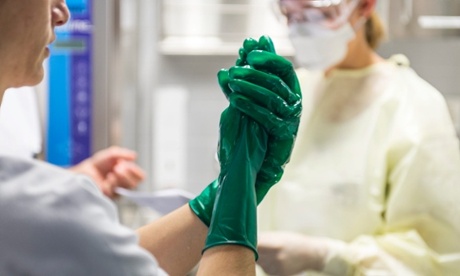Changes being introduced by the Australian Health Practitioner Regulation Agency will bring foreign applicants into line with local workers

Australia’s medical watchdog is toughening its background checks on doctors and health workers from overseas to bring them into line with local workers.
The Australian Health Practitioner Regulation Agency conducts criminal history checks on Australian doctors and obtains a report on behalf of the applicant before they are registered.
But doctors arriving from other countries only need to tick a box declaring they have no criminal history. The AHPRA says until now it has lacked the resources to verify the bulk of these claims. International doctors will have to pay to fund the checks.
The AHPRA’s chief executive, Martin Fletcher, said it was being announced in advance to give international doctors time to prepare for the change in the new year. “This is a new process, and we will review it to make sure it is working well,” Fletcher said.
“We need to understand and manage any risk to patients and the public from someone’s international criminal history, while not creating undue delays for people applying for registration in Australia.”
Last month Guardian Australia revealed that a radiologist, Max Mehta, who fled a child sex predator charge in the US, had been working in Australia since 2009 under the name Robert Taylor. He did not disclose the charge to AHPRA, which is now investigating.
The more stringent background checks will not apply to international doctors already registered in Australia. They will be carried out on overseas applicants who declare a criminal history, or who have lived in countries other than Australia for six consecutive months or more since the age of 18.
There have long been calls for strengthening such checks. In 2011 it was revealed one in 15 medical practitioners registered to work in NSW had a criminal past, many of whom were international medical professionals registering for the first time.
A leading Australian medical lawyer with Slater and Gordon, Bill Madden, said the procedural changes should increase the confidence of patients.
“From a patient protection viewpoint, it is good to see that AHPRA will implement a more robust method in order to meet the statutory requirement for consideration of international criminal history, by the various national health professional boards,” he said.
• Do you know more? Email melissa.davey@theguardian.com
